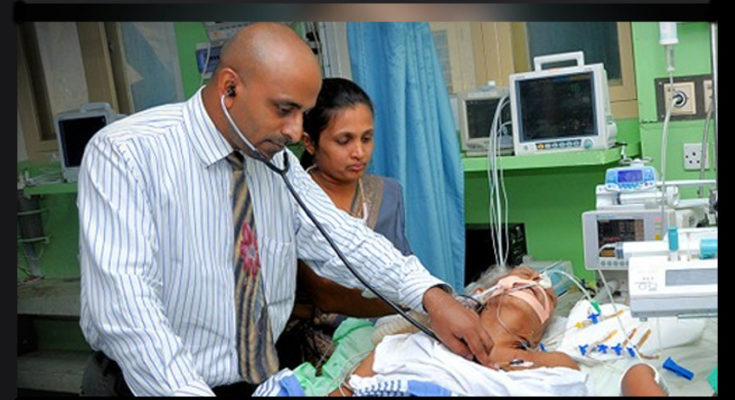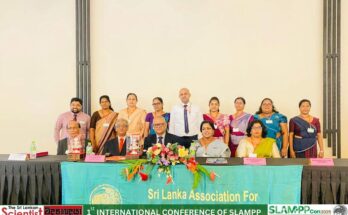Though Sri Lanka still has comparatively less per capita income, the country has achieved a considerable improvement in Social development. Sri Lanka has comparatively higher literacy rate, IT knowledge and health compared with the other South Asian countries. However some health sector problems still present being a barrier to the social and economic development of Sri Lanka.
There were different hazardous disease outbreaks in 20th century such as Polio and Malaria, but now under control. Measures have been taken to combat filaria by distributing anti filarial tablets island wide by the government health officials. This effort has been successful and the Filaria is now recorded rarely in Sri Lankan society. Although HIV infections can be found at higher rate in some underdeveloped countries, Sri Lanka has less number of infected people as per the statistics. However, can we just relieve ourselves with these facts?
There are more issues to be addressed before we step into any preliminary judgment on our country’s health status. Dengue fever that occurs frequently with rainy period, TB, Rabies, diarrhea and Acute and Chronic Respiratory infections lead to many deaths and disabilities.
Non-communicable diseases have shown a new shift of Sri Lankan health issues to a different side. Metabolic syndrome is getting higher in Sri Lanka. Further, bad dietary habits motivate the condition of metabolic syndrome as heart issues, obesity, diabetics, high blood pressure, liver issues and cancer. Instant food items available in the super markets, is deemed main reason for this issue. Sedentary life styles, lack of exercises, attitudes like laziness to cook a healthy meal are some reasons to fall sick heighted by consumption of instant foods. Malnutrition is also a key health issue in Sri Lanka. This issue is common to urban, suburban, rural and estate sector communities.
The kidney disease (CKDU – Chronic kidney disease of unknown aetiology) spread in North central parts of Sri Lanka is guessed as caused by reacting agro chemicals with polluted hard water. This is not a simple problem to be neglected since many deaths have been reported due to the Kidney disease.
Different health challenges are there to be addressed when building a developed country. Prevention, control and management of vector borne diseases and non communicable diseases, going for different solutions to combat malnutrition, developing research facilities to facilitate gene therapy for inherited diseases, genetic and immunological treatments against cancer are the steps to be launched during the process of building the nation.
Western allopathic medicine is the main treatment method in almost all the government hospitals. However, it is not an issue of curing a person by any medicine since the main aim of the government authorities is to cure a patient and relieve him/her from suffering.
However we should not forget that we have an indigenous medicine which is far more similar to ayurveda. This method of indigenous medicine has been available in our country for centuries. Therefore, authorities should focus on indigenous medicine during their way towards the development process of Sri Lankan health sector by referring to the reliable traditional ayurvedic practitioners scattered in rural areas; those are known to cure fatal diseases such as cancers.
Low cost innovations also have a great role to play on our way towards healthy and secure Nation. Development of low cost devices to loose weight, self-operated infusion devices for iron chelating thalassemia, low cost diabetic foot care devices, low cost appliances for elderly people are some of the innovative devices to make people healthy.
Information technology is very essential to solve the problems of health sector. Proper documentation of the health statistics in data bases, statistically analyzing them by software, interconnecting different health institutes are some of the works to be done to build a healthy Nation.
There are barriers when formulating a better health policy. Disagreements between different physicians from different medicinal systems are one major barrier. However if proper mutual understanding would be able to gather all the medicinal systems under a single umbrella, the dream of a healthy nation can be realized easily. Lack of investment on health sector from the National income, underdeveloped hospitals of rural areas with less human resources, and lack of medicines is one major challenge to build a healthy nation.
As a conclusion we should not overestimate our work and our health sector even though our figures are higher than that of the neighboring countries since it is not the way a developing country should proceed.
About the Author
 S A Mahawattage
S A Mahawattage
B.Sc. (Agri) Sp. In Biotechnology,
Department of Agriculture



 SAHASAK NIMAVUM 2025: Sri Lanka’s Premier Innovation Showcase Returns This April!
SAHASAK NIMAVUM 2025: Sri Lanka’s Premier Innovation Showcase Returns This April! 
